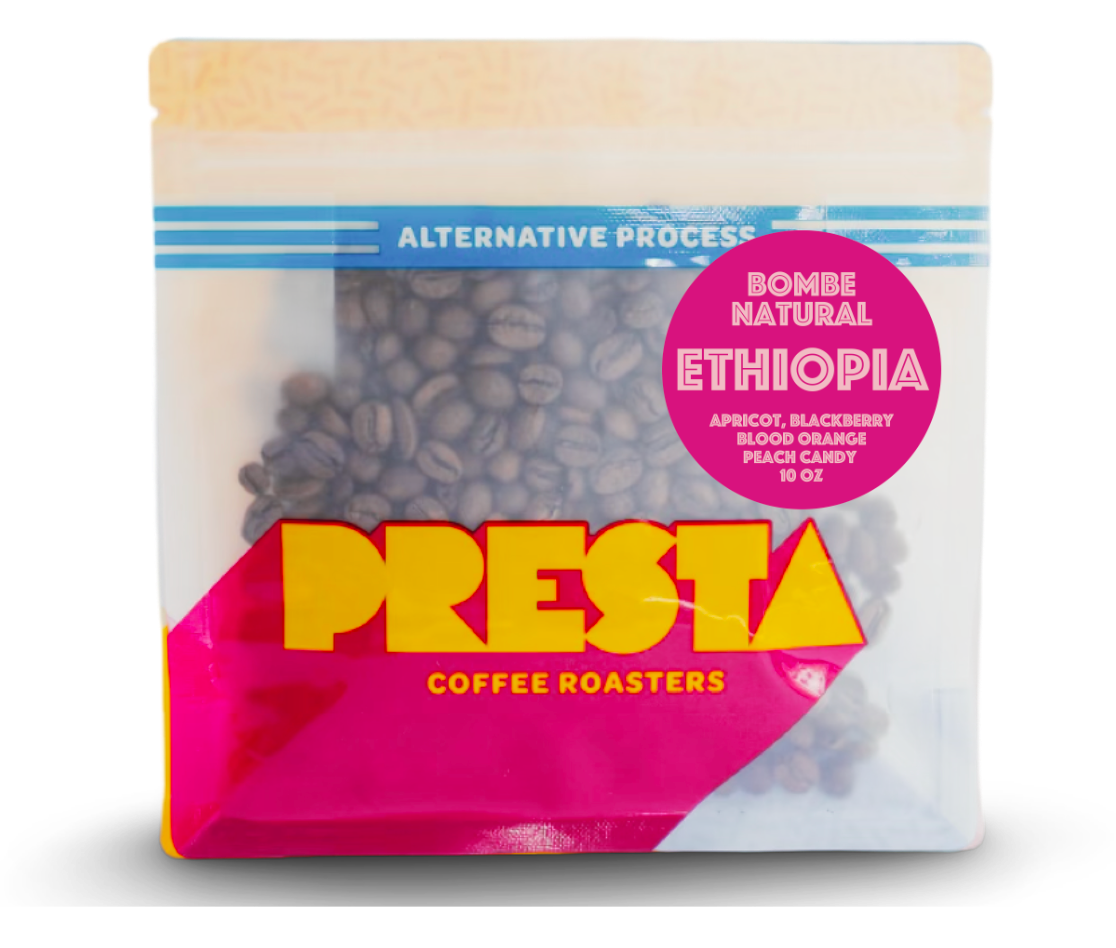
Ethiopia - Bombe - Natural
Region: Sidama, Bombe
Farm: Smallholder Farms (less than 5 hectares)
Producer: Smallholder Producers
Process: Natural
Variety: 74158, 74112, Mikicho
Elevation: 2000-2226 MASL
Tasting Notes: Apricot, Blackberry, Blood Orange, Peach Candy
This is the third year we have chosen to bring in a lot from the Bombe kebele in the Sidama region of Ethiopia. This year we chose a mild natural and that is an easy daily drinker and reminds us more of a washed process than the juicy red fruit notes we are used to finding in Natural process coffees. We like to pick a coffee like this because the smallholder producers use traditional farming methods and when the coffee from each of those farms is combined into a single lot, it brings some lovely complexity and depth of flavor that is very different from the single farm single & varietal coffees that we also source.
Natural processed coffee uses the least amount of water and energy to accomplish the same goal of removing the coffee seed (bean) from the coffee cherry. Once harvested the coffee cherries are spread out to dry without removing any of the coffee skin or fruit mucilage. The cherries can be dried in any number of ways, sun or shade, concrete pads or raised beds, mounded or flat, anywhere from 7 to 28 days, and with each variation from each producer, a slightly different result. Once the cherry is dried it is sent through a dry mill (often a regional facility) that removes the skin, (dry) fruit matter, and parchment layer at the same time. Though it is common practice to combine the green coffee from multiple farms to create a lot big enough for green coffee buyers (like us) to be interested. We also source single farm, natural process coffees.
This coffee, like many in Ethiopia, undergo an initial rinsing to clean any debris off the cherries, and a float sorting process to remove any cherries that are a different density from the majority of the cherries. Once the first sorting process is done the cherries are spread on raised drying beds where it gets dried under the hot sun, getting turned by hand for even drying while the workers also hand-sort any defects they find. The resulting profile is much more like a washed process coffee, with blood orange and dried apricot notes presenting themselves.
